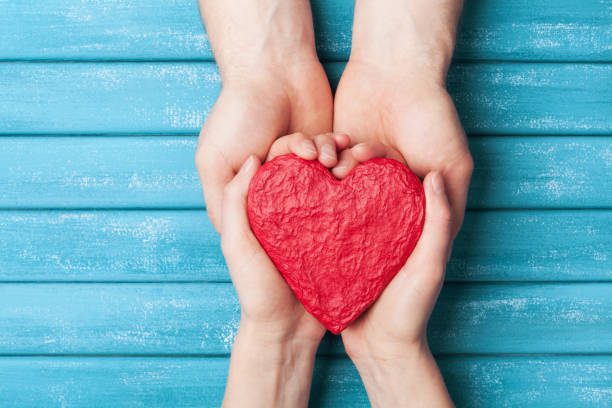It’s Autism Awareness Month; it rolls around every year at the same time. I, and all parents and caregivers, grasp at this month with all our might in hopes that we can somehow use it to improve the world for our children. This feeling is something most people who do not love and care for a child with a profound disability, whose children grow to live independently, do not and will never understand.
The Puzzle Piece
We spent nearly a century fighting to identify Autism. To give it a name and identify features that could be jotted down, then studied and observed. The symbolism of the puzzle piece is now used to illustrate the growing understanding of the bigger picture that is Autism. From this picture, the identifiable diagnosis, we birthed ‘Autism Awareness.’
We now have a description, an identity that we can use to educate the greater population, and a title we can campaign behind collectively. In short, we can make the general population aware of the existence of Autism.
This awareness led to better understanding. This understanding provides a sense of the therapies and accommodations needed, based on compassion and empathy for the human experience, guiding us slowly to acceptance.
Educating the world
I believe we’re in this phase right now with Autism Awareness. Special Needs parents are tasked with helping our children understand themselves and educating the world of Autistic children’s individual needs. We are desperately pulling at the compassion and empathetic heartstrings of humanity’s better nature to understand our children’s needs and understand that their experience is the human experience too.
The more we know, the more it hurts
If you are not lovingly parenting a child with Autism or a profound disability, you will not understand. But the longer we have been on this path of awareness and acceptance, the more we acutely and painfully realize that society, no matter where you look, prioritizes and values able-bodied individuals—those who are economically profitable.
Sadly, it’s more economically advantageous to society for us parents to be reduced to advocating for our children’s needs as adults well after our own bodies age and fail them as caregivers.
Age with dignity?
I began a journey advocating for the National Disability Strategy in hopes of bridging funding gaps, supports, and resources so that my children and every child with a disability and their parents and caregivers can age with dignity. We deserve to live fearlessly and with confidence, knowing that disabled individuals will not starve, will not be impoverished, living in dehumanizing conditions should they be unable to be financially and functionally independent.
Through this work, I realized that the ‘selling point’ of a National Disability Strategy wasn’t based on the value of these precious lives. It is not based on immeasurable love for a fellow human but instead on the economic benefits of doing what is morally and ethically right. The harsh reality that the blessing of my children gets turned into a mere dollar amount has shattered my heart. And will shatter the hearts of every parent and caregiver on this journey.
Shattered
Let’s be clear; it is not our children’s diagnosis or their struggles that shatters us; it is the reality that our society does not properly value their existence. The heartbreaking thought is that our love is not enough to keep them safe, alive, and happy when we are no longer here to protect them. It is a painful realization that our children’s humanity is not valued, that shatters us, and I hope it shatters you too.
I hope that this awareness stirs you.
Be aware of all the love you feel for your child, your brother, your sister… your fellow human; how it guides you to want them to be safe, happy, and healthy. Think about how dehumanizing and heartbreaking it would be to quantify the value of their existence and their profitability. Now use it as a means to negotiate their future safety, health, and happiness. It’s incomprehensible, and it’s the reality of so many families.
Our children are beautiful, strong, resilient, kind, compassionate, unique in every imaginable way; above all, they are humans. They are bursting with human emotions; joy, pain, relief, fear & love, just as you and I do. And they are aging just as quickly.
The weight of time
Many parents are at the beginning of their parenting journey. They have time to educate on the awareness required for the accommodation and acceptance of our children. Sadly, many of us are further along the parenting journey. The weight and lack of time to teach awareness that values humans, not for their economic profitability, but for their simple human existence, is building a pressure deep within us that is suffocating.
Surface Pressure
When Disney’s new movie, Encanto, came out and the song ‘Surface Pressure’ was heard by millions. It’s safe to say that for parents raising children with Autism, our tears flowed with the relatability of that pressure. This surface pressure is what we feel about advocating for our children to have the opportunity to thrive. This pressure is even heavier for us as we must change the world’s values to be human-centered instead of profit-centered. These pressures are robbing us of enjoying simple pleasures and relaxation.
Which leads me to my one ‘ask’ this Autism Awareness Month:
See the value of my children for the worth of their humanity and not their economic profitability. Join us and advocate from a place of love. Be sold on the love that one human gives to another. Be sold on the need for a safety net that will catch them when us parents can no longer provide or care for them. Be sold on the dignity of aging for all of us. Be sold on the value of the human experience.
In short, love my children too.

